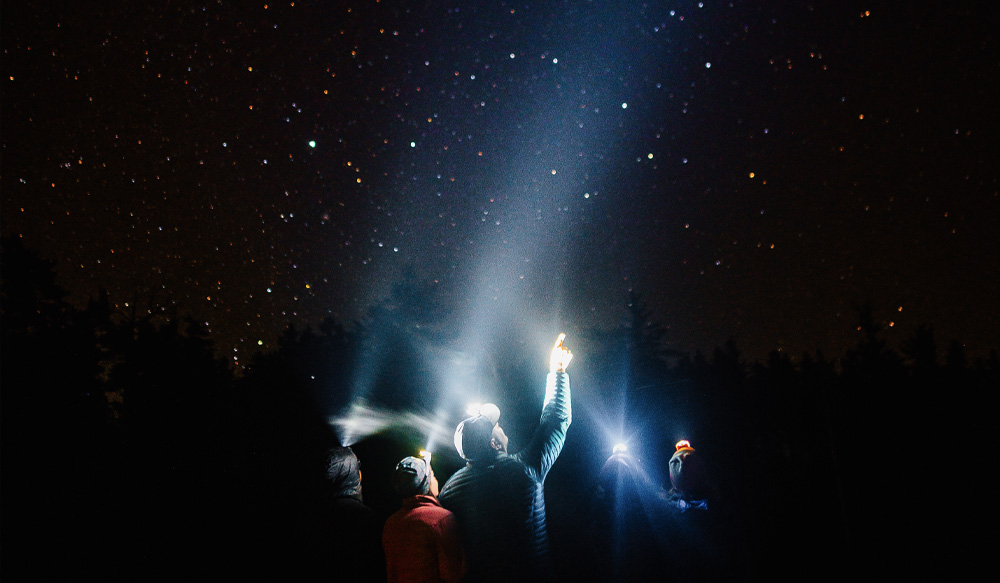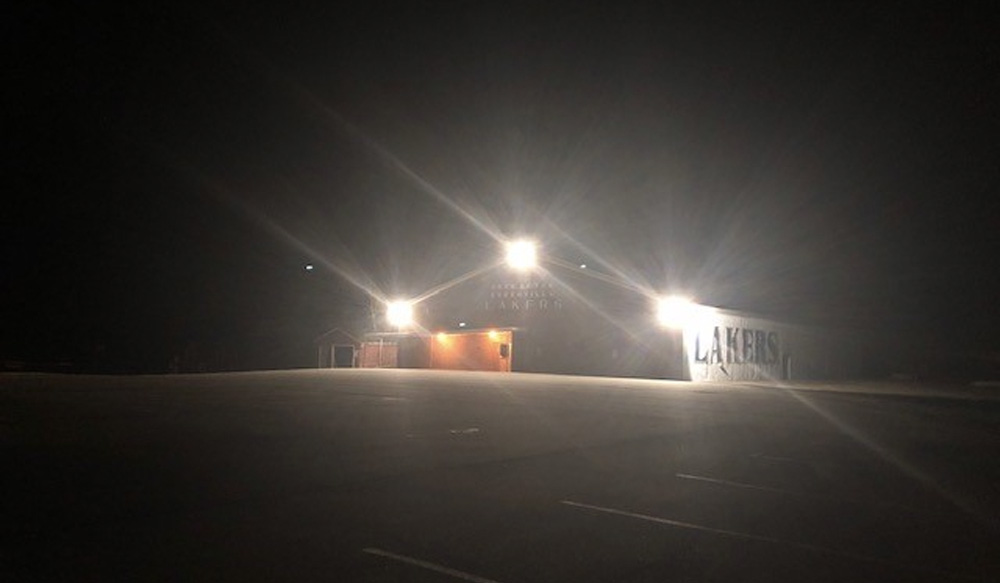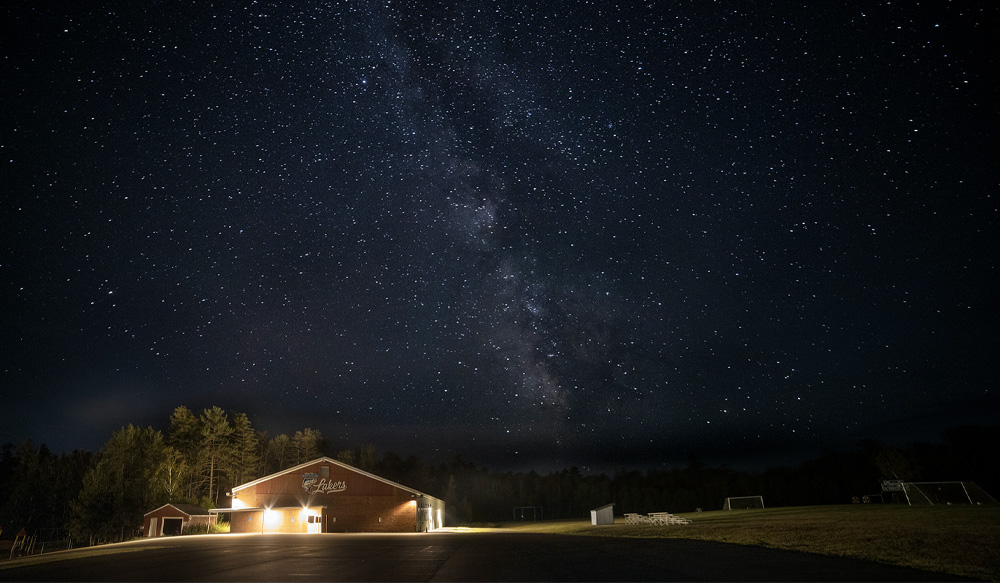

Guests enjoy light pollution-free stargazing at the AMC Maine Woods International Dark Sky Park. Photo by Cait Bourgault.
When you look at the sky at night, what do you see? Until a few generations ago, people everywhere saw the same thing. A sky filled with stars, planets, and galaxies. Today, if you’re like 80% of the world’s population, and 99% of Americans and Europeans, there are few visible stars, and little in the way of true darkness. That matters more than you may realize, for your health and the health of the planet.
Fixing the problem won’t be easy, but it’s achievable in a short timeframe. International Dark Sky Places, areas almost entirely free of light pollution like the AMC Maine Woods International Dark Sky Park, are setting the example for how we get there.
What is Light Pollution?
The reason for our vanishing night skies is man-made light pollution.
Light pollution is when artificial light brightens the night sky. Light pollution can be caused by both exterior and interior light, including streetlights, billboards, sports stadiums, and bright interior lights.
This kind of pollution isn’t an unavoidable consequence of urban living. Many of the lights we use are designed inefficiently. They either shine too brightly or leak into spaces that they aren’t intended to illuminate. Reducing glare can be as simple as turning a light off or away from the sky.
Artificial light may seem like a minor problem compared to other man-made pollutants, like the greenhouse gas emissions that contribute to climate change. However, light pollution is a symptom of a larger problem. And its negative consequences go beyond what meets the eye.


The Bortle Scale is a way of measuring light pollution. Unfortunately, most people around the world have limited night sky visibility.
For Humans
Light pollution is associated with all kinds of health risks for people, from poor sleep to cancer. Artificial light disrupts the body’s ability to produce its own melatonin, the chemical that makes us sleepy. Melatonin is essential to the healthy function of many organs, including the thyroid, which helps regulate weight. In fact, research from the National Institutes of Health has linked artificial light during sleep with obesity. Even more frightening are studies correlating light pollution to hormonal cancers like breast cancer and prostate cancer.
The loss of dark nights is also part of a much larger environmental problem. Excess and inefficient lighting is a major waste of electricity, increasing greenhouse gas emissions and contributing to the climate crisis.
For most of human history, we’ve dictated our lives around the setting and rising sun. We’ve gazed at the stars, used them for navigation and made them a part of our folklore. When we lose the night sky, we lose a part of who we are.
For Plants and Animals
Just like deforestation, light pollution has a far-reaching impact on ecosystems. Many animals perform their essential functions, from breeding to migrating, at night. Limited darkness can disrupt these essential patterns. Light pollution also affects the circadian rhythms of pollinators, preventing plants from reproducing.
One of the most striking examples of the impact of artificial light is the damage it has done to sea turtle populations. Baby sea turtles hatch on land and find the ocean by identifying its bright horizon. Artificial light from homes and businesses near coastline, however, confuses hatchlings and can cause them to go in the opposite direction. Millions of sea turtles die each year because of light pollution. Today, most species of sea turtles are classified as endangered, in part because of this issue.


Photo by Jenny Ward.


Greenville Consolidated School before and after the installation of efficient lighting. The project was handled in partnership with AMC. Photo by John Meader.
What Can You Do?
Artificial light is everywhere we look. Combating light pollution may seem hopeless. In fact, it’s one of the few “quick fixes” in conservation. When we turn down the lights, the night sky becomes darker almost immediately.
To see the difference night sky conservation makes, you can visit a Dark Sky Place. These are areas that Dark Sky International has recognized for their continued stewardship of the night sky. Becoming a Dark Sky Place requires areas to have a healthy night sky and put in the work to protect it for future generations. In 2021, AMC was proud to see our Maine Woods Property certified as the first International Dark Sky Park in New England.
IDA designations don’t happen by chance. AMC’s certification was thanks to the hard work of our staff and community partners, who replaced lights in the region with more efficient options and developed a lighting plan that would keep the sky dark for future generations
This work is an example you can take back to your community, even if you live in a place where light pollution is prevalent. Start with your own lighting. Ensure you’re covering the lighting and using bulbs that are only as bright as necessary. Work to educate your friends, family, and neighbors about the harm caused by light pollution. Advocate in your community for a lighting plan that holds businesses accountable for how they use light.
Doing your part can be as simple as turning off the lights when you aren’t using them. But night sky conservation is most effective when we work collectively. If we bond together, we can begin to See The Dark in a whole new light.